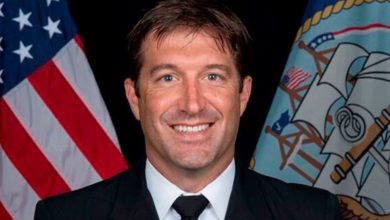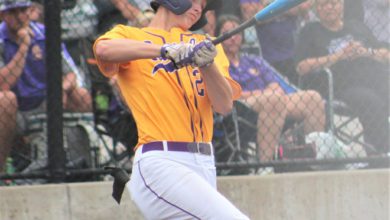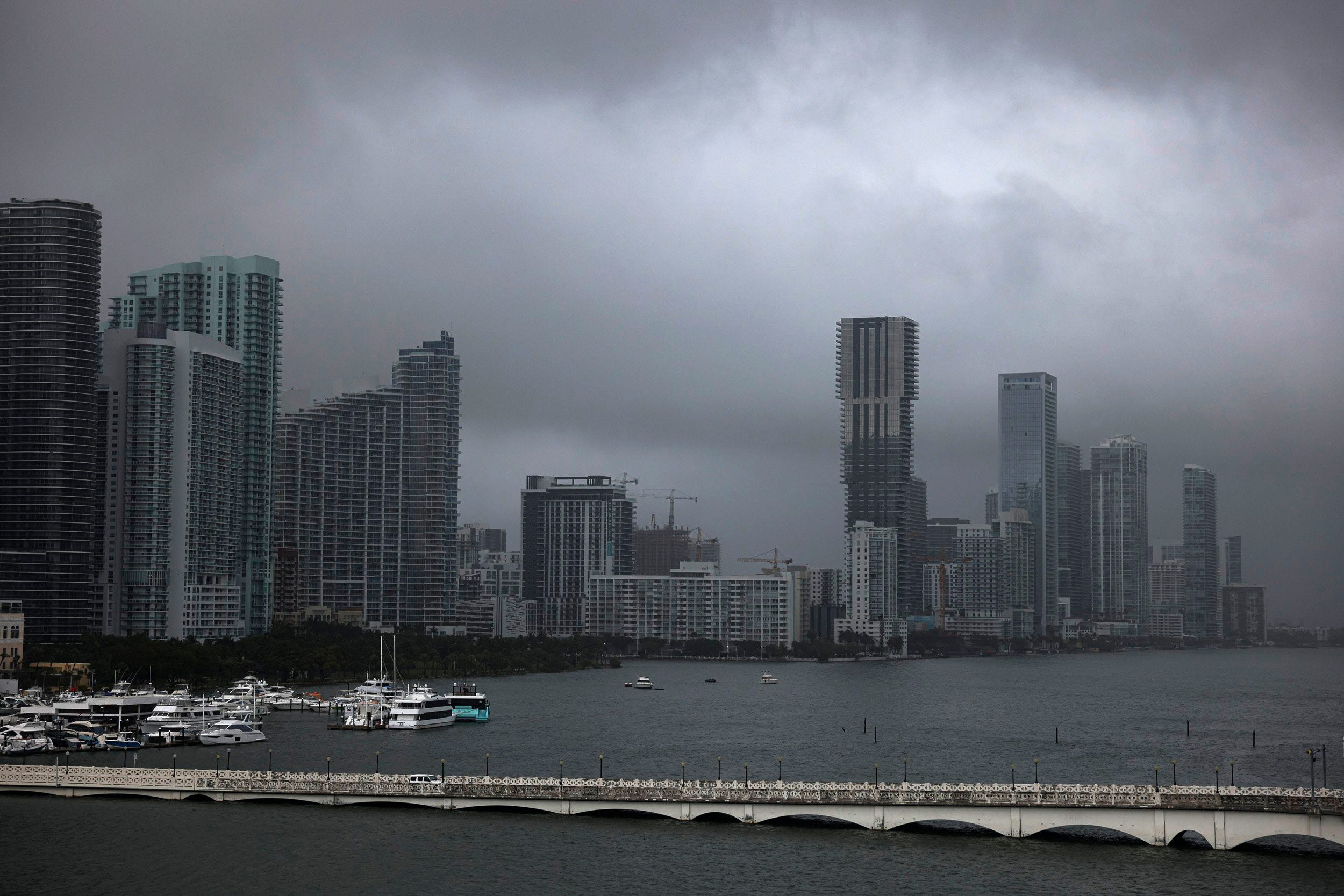Jack Teixeira, the Massachusetts Air National guardsman accused of leaking highly-classified military documents, said in November 2022 that if he had his way, he would “kill a [expletive] ton of people” because it would be “culling the weak minded," according to a new Justice Department motion in the case.
In February 2023, Teixeira allegedly told someone on social media that he was tempted to make a specific type of minivan into an “assassination van,” the DOJ said.
And a few years earlier, Teixeira "was suspended in high school based on concerning comments (he) made about Molotov cocktails and other weapons," the motion said.
But if he was such a danger to the public, experts are asking, why did Teixeira get a top-secret security clearance? And why wasn't he identified and stopped earlier?
“Teixeira is 21 years old. He was in high school less than 3 years ago. What exactly did the background investigators do?" asked former senior FBI counterintelligence agent Peter Strzok said.
Stay in the conversation on politics:Sign up for the OnPolitics newsletter
More:Here's why the US can't stop military and intel members from leaking top-secret documents
"Huge security clearance background investigation problems here," Strzok added in a series of tweets Wednesday night soon after the government introduced the new court filing. He noted that the Justice Department also said Teixeira was denied an application for a firearms identification card due to local police department concerns.
"But that didn’t hold up his (top-secret) TS/SCI clearance," Strzok said. "No senior leader in DOD should sleep easy tonight. If this obviously unsuitable behavior got through the background investigation process, how many other unidentified security clearance issues remain out there?"
A TS/SCI clearance, short for Top Secret/Sensitive Compartmented Information, is one of the highest U.S. military and intelligence security clearances available. Teixeira reportedly had one given his job as an information technology, or IT, tech, and his past work while on duty at Ft. Bragg, where he likely had access to the military's Joint Worldwide Intelligence Communication System.
Teixeira has been charged with the unauthorized removal, retention and transmission of classified national defense information about the war in Ukraine and U.S. efforts to spy on its enemies and allies. The disclosuresexposed the fragile wartime relationship between Washington and its allies.
An airman first class, Teixeira joined the Air National Guard in September 2019. Until his April 13 arrest, he worked at Otis Air National Guard Base in Massachusetts.
On Thursday,Magistrate Judge David Hennessy said he would make no immediate decision on whether to release Teixeira into home confinement, returning Teixeira to lock-up. He has yet to enter a plea in the case.
The Pentagon's response
Under the current system, background checks are conducted by the Defense Counterintelligence and Security Agency, according to Mark Zaid, a Washington attorney who specializes in security clearances.
The Pentagon has disclosed few specifics of what it knows about the Teixeira case and whether background investigators took appropriate steps to probe his background.
On Thursday, Pentagon chief spokesman Brig. Gen. Pat Ryder
said he couldn’t comment specifically on the new revelations, citing the Justice Department investigation.
But he said the Pentagon has a continuous vetting process for those in the military holding a security clearance that includes “near real-time monitoring” that is supported by automated record checks that pull data from different data sources, including criminal, financial and public records.
The security-clearance investigation process also includes "a careful weighing of a number of variables known as the whole-person- concept ... where you are interviewed, friends, family, acquaintances are interviewed," Ryder told reporters.
“But in terms of individual searches and what those are and the context of what those searches may be and why, it's important to obviously look at each of those cases individually, and as it relates to this Airman, that's something that the investigation will have to tell us,” Ryder told reporters.
“As you've heard us say,” Ryder added, “the epartment is looking not only at our intelligence processes and procedures as it relates to security or sensitive information and who has that information, but also looking at the process by which we clear and vet individuals for security clearances, and that work is ongoing.”
Who leaked the Pentagon documents?:What we know about Jack Teixeira, the suspected DOD leaker

A history of clearance problems
But there have been other cases over the years where members of the military, and U.S. intelligence agencies, stole and in some cases leaked military secrets. Those cases raised questions about both the effectiveness of the background screenings and whether authorities were properly monitoring monitoring them for possible signs of trouble.
Such warning signs, many of which authorities say Teixeira has demonstrated, include inappropriate and potentially violent social media postings and personal interactions with other people.
But problems remain in the system, according to experts, including Glenn Gerstell, the general counsel for the National Security Agency from 2015 to 2020.
“The Teixeira case shows, once again, how difficult it is to rigorously vet people who are going to be entrusted with classified secrets," said Gerstell.
Gerstell said one especially thorny problem is that background check investigators must not violate civil liberties safeguards.
The allegations in the Justice Department filing indicate that the government needs to do a more effective job in uncovering some of these other factors that don’t directly relate to traditional counterintelligence threats, Gerstell said. "It’s a really tough problem - uncovering misfits, as opposed to traditional concerns over foreign powers."
He noted that it’s especially difficult to uncover social media posts that might reveal concerns.
"We can probably balance civil liberties and due process and privacy on one hand with being a little more vigilant and vigorous in this area of vetting and screening people and watching them," Gerstell said. "And if you're going to get a job in this area, that's the price you're going to pay; you're going to be subject to a heightened level of scrutiny. And if you don't like it, don't take the job."
Extensive vetting is supposed to happen. But did it?
Teixeira would have been subject to extensive vetting to receive his security clearance to work at the 102nd Intelligence Wing, said retired Air Force Lt. Gen. L. Scott Rice, who led the Massachusetts National Guard and, at the Pentagon, the Air National Guard.
Screeners would have interviewed people who knew him, and asked those people for more references on him, Rice said. That Teixeira had a stepfather in the military would likely have been viewed favorably.
Teixeira would need the clearance to work on the computer hardware and software needed at Otis to help Air Force analysts sort through intelligence data – poring over video collected from spy planes, for instance – that flowed in from around the world, Rice said.
“They need to boil down data into manageable, understandable information,” Rice said. “Something actionable for decision makers.”
Teixeira would have worked in the background. “This guy was a kind of tech, making sure things work right,” Rice said. The military depends on thousands of young, trained personnel with high-tech skills to work in the “vault” where secret information is processed.
He'd have had access to the system but no business rifling through reports, Rice said.
Air Force investigators and the FBI will now be tasked with determining what was missed in screening Teixeira, Rice said.
The suspension of senior commanders in the 102nd Intelligence signals that some steps were missed, Rice said.
“Pure speculation, but there may have been a deviation from procedure,” Rice said.
Gaps in the clearance system
Zaid was one of several experts who told USA TODAY that gaps remain, especially when it comes to young military personnel.
"Generally, when conducting a security clearance background investigation, the government does not look before the individual's 18th birthday, unless – as in Teixeira's case – the individual needed to show two years of prior education."
Zaid said Teixeira's case underscores how new policies need to require applicants reveal all social media usernames on their security background questionnaires. What's more, he said, the federal government should consider monitoring publicly available online postings by clearance holders.
“The security clearance process isn’t going to catch anything and everything, but there are real questions here about the sufficiency of what was done," said Bradley Moss, another Washington lawyer who specializes in matters involving security clearances for military and intelligence officials.
One of the most significant red flags in the new court filing, Moss noted, was that Teixiera apparently was suspended in high school due to violent commentary, something his lawyers argue was known about and vetted before he got his security clearance.
"How much of the details were vetted by the Air Force, and did it require a supplemental mental health evaluation to assess the issue?" Moss asked. "Did the Air Force speak with relevant friends and associates about Teixiera’s personal behavior in the context of that incident? These are basic investigative steps that are supposed to be taken.”
Follow Josh Meyer on Twitter at @JoshMeyerDC
Source link









